What will it take for our next election to be credible and acceptable to all?

Under pressure from many directions, both national and international, the government has been promising that the 12th parliamentary election will be free and fair. Our constitutional scheme also mandates fair elections. International laws and covenants, such as The Universal Declaration of Human Rights and International Covenant on Civil and Political Rights, too, obligate us to hold such elections. Thus, if we are to abide by our Constitution as well as international laws, the government will have to ensure that the next election is free and fair.
It must be noted that free and fair election necessarily means competitive election, where not only will the major political parties participate, but each of them will also have an equal opportunity to win. Now the question is: what will it take for our next election to be credible and acceptable to all?
An important requirement of a free and fair election is that the electoral process is transparent, and credible. It must be recognised that the election is not a one-day phenomenon – it is a process involving multiple interrelated steps. They include the conditions that: (1) All eligible citizens can become voters; (2) All aspiring contestants can become candidates; (3) Voters have credible alternative candidates to choose from; (4) Scrutiny of the eligibility of candidates is fair; (5) Constituencies are delimited on the basis of a set of fair criteria; (6) Political parties and candidates can carry out their campaigns freely; (7) Antecedents of candidates are available for voters to make an informed choice in polling booths; (8) Candidates can field their agents in polling booths; (9) Voters are able to cast their vote without pressure or fear; (10) Influence of money and muscle on the election are effectively controlled; (11) Vote counting is transparent and accurate; (12) Election is monitored by credible election observers; and (13) Election disputes are settled speedily and impartially.
The above steps, it must be noted, are laid out in the body of election laws, such the Representation of the People Order, 1972 and The National Voter Registration Act, 1993, which govern elections as a means of fulfilling Article 119 of our Constitution. Proper and impartial execution of these steps is an important prerequisite for preventing rigged elections.
Another important requirement for free and fair elections is the neutrality of certain critical institutions responsible for carrying out the above steps. Most important of these institutions are: the Election Commission (EC), the bureaucracy, law enforcement agencies, and the higher judiciary. The EC plays the most pivotal role and is constitutionally mandated to ensure credible elections.
Considering its importance, Article 118 of our Constitution mandates the creation of an independent EC. The Constitution also gives its members necessary protection so that they can act independently and impartially. Thus, the formation of an independent EC with people of impeccable integrity and courage is an important prerequisite for a credible election. Unfortunately, there have been serious concerns raised about the manner in which the present Commission was constituted over a year ago, and a case is now pending in the High Court questioning the issue of its transparency. The credibility of the EC has also been under serious question because of all the actions and utterances of its members.
Although the Awami League-led Grand Alliance came to power in 2009 with a commitment to depoliticise the bureaucracy and law enforcement agencies, these institutions have been made subservient in many respects to the interest of the ruling party over the past decade. In fact, the partisan behaviour of these two institutions was instrumental in the questionable election of 2018. There are also allegations from the opposition of the court's undue interference in the scrutiny of candidates in the last election. Furthermore, not a single election petition filed after the 11th parliamentary election, to our knowledge, has so far reached its finality, creating the prospect of them ultimately becoming infructuous.
The seventh, eighth, and ninth parliamentary elections, held under the NCG, were considered to be credible by all neutral observers. In fact, the NCG was a settled matter and the Special Parliament Committee (formed to amend the Constitution by the ninth parliament), on May 29, 2011, unanimously recommended to amend the Constitution retaining the NCG, which unfortunately was changed after they met the Prime Minister the next day.
Another, and perhaps the most important, requirement of credible elections is the constitutional framework, which must be conducive to free, fair, and competitive election.
Our original Constitution provided for holding elections under the party in power and none of the parliamentary elections held under that constitutional framework was fair and credible. To remedy that situation, the 13th amendment of the Constitution was enacted by the BNP in response to a vigorous movement by an AL-led alliance, to create a neutral caretaker government (NCG), representing a consensus among major political parties. The seventh, eighth, and ninth parliamentary elections, held under the NCG, were considered to be credible by all neutral observers. In fact, the NCG was a settled matter and the Special Parliament Committee (formed to amend the Constitution by the ninth parliament), on May 29, 2011, unanimously recommended to amend the Constitution retaining the NCG, which unfortunately was changed after they met the Prime Minister the next day.
Subsequently, the AL-led Grand Alliance, in a majoritarian manner, unilaterally passed the 15th amendment to abolish the NCG and hold future elections under the party in power. The amendment was passed by taking advantage of the Supreme Court's short order of May 10, 2011, and also, according to experts, an unconstitutional constitutional amendment ("The Constitutionality of 15th Amendment," The Daily Star, February 8, 2023, by author). The amendment essentially tilted the electoral field in favour of the ruling party, which will prevent the EC from meeting its constitutional mandate to hold credible elections. Thus, unless a new political settlement is reached to amend the Constitution to create a neutral election-time government, the hope for a free, fair, and competitive next election would clearly be a mere pipe dream.
For the 12th parliament election to be free, fair, and credible to meet the demands of all concerned, the electoral process not only needs to be fair but all relevant institutions must also act neutrally. More importantly, the prevailing constitutional scheme must create a level playing field and provide equal opportunity to all political parties. In fact, our Constitution, according to constitutional expert Mahmudul Islam, "does not envisage anything else than free and fair election and any law which stifles the hands of the Commission in ensuring free and fair election will not pass the test of constitutionality" (Constitutional Law of Bangladesh, 3rd Edition, p. 973).
Dr Badiul Alam Majumdar is secretary of SHUJAN: Citizens for Good Governance.
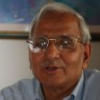
 For all latest news, follow The Daily Star's Google News channel.
For all latest news, follow The Daily Star's Google News channel. 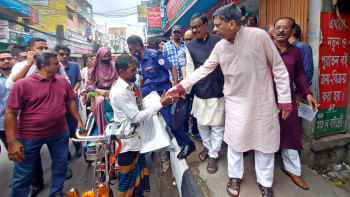

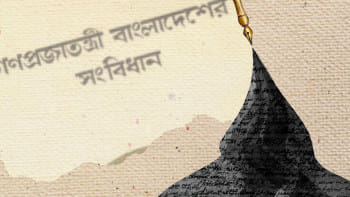


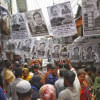


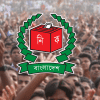


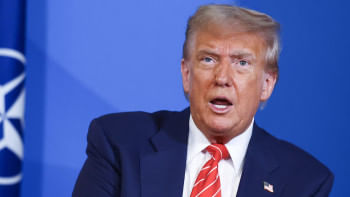
Comments